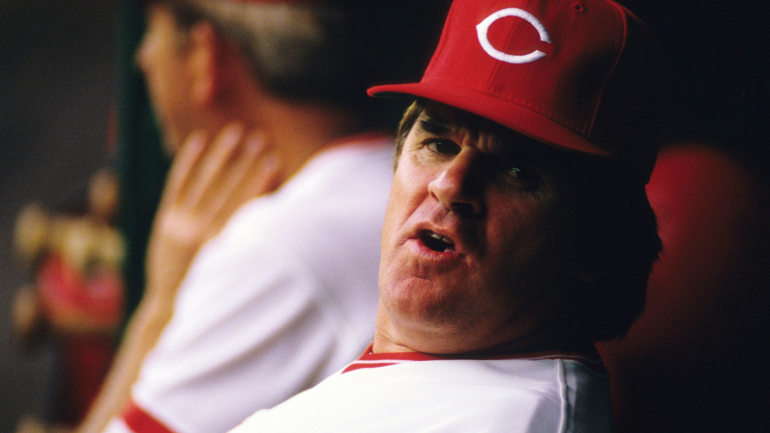
Major League Baseball's regular season began on Wednesday with a contest between the Los Angeles Dodgers and the San Diego Padres in Seoul, South Korea. Just hours after global superstar Shohei Ohtani made his Dodgers team debut, he found himself at the center of a controversy involving longtime interpreter Ippei Mizuhara, who was subsequently fired by the Dodgers organization amid allegations of illegal gambling.
It's worth noting that Mizuhara has not been accused of gambling on baseball. MLB personnel are allowed to bet on non-diamond sports (in other words, not baseball or softball) provided -- and this is the important part of the situation -- sports gambling is legal in their jurisdiction. Gambling remains illegal in California, leading Mizuhara to allegedly place bets with Matthew Bowyer, an accused bookmaker at the center of a larger investigation.
Bowyer, for his part, has claimed through a lawyer that he's never met or spoken with Ohtani.
The facts become muddled from there. Mizuhara partook in a lengthy interview with ESPN during which he initially claimed Ohtani had paid off his gambling debts. He later changed his story, saying Ohtani had no knowledge of the situation and had not transferred money to the bookmaker's associate. A spokesperson for Berk Brettler law firm issued the following statement to CBS Sports on Wednesday: "In the course of responding to recent media inquiries, we discovered that Shohei has been the victim of a massive theft and we are turning the matter over to the authorities."
MLB is monitoring the situation and plans to gather facts, CBS Sports has learned. The league was not notified about the investigation before the news broke.
Organized baseball and gambling have a long and oftentimes sordid history. In light of the allegations surrounding Mizuhara, CBS Sports felt this would be an appropriate time to revisit some of that history by highlighting 10 of the most notable scandals and stories. (Do note that this article is intended to be a brief, incomplete overview and is not a suitable replacement for a full-fledged education on these incidents.)
1865: The New York City Mutuals make history
Although the Mutuals were an amateur team, they're worth including because they represent the first time in documented history that a baseball club was tempted into game-fixing or gambling.
The Society for American Baseball Research went into great detail about the Mutuals' game-fixing allegations in 2013, noting that three members of the team "conspired with a gambler to throw a game to the Eckfords of Brooklyn." Those players were, for a time, banned by the National Association of Baseball Players.
1871: Chadwick scolds league as gambling reaches the pros
The National Association, formed in 1871, was the first professional baseball league. It didn't last long, as it was littered with game-fixing attempts and allegations.
Baseball Hall of Fame journalist Henry Chadwick, later christened as the "Father of Baseball," became an outspoken critic of the National Association's ways. At one point, he wrote the following, per "The Cheater's Guide to Baseball" by Derek Zumsteg: "No positive proof can be brought forward in support of any direct charges of collusion among players for fraudulent purposes but not one man out of ten who witnessed the majority of games of October last can be persuaded that the contests were fairly or honorably contested."
The National Association folded in 1875, with teams leaving to form the National League -- a creation that Zumsteg wrote in "The Cheater's Guide to Baseball" was "intended to be better organized, more businesslike, and set higher standards than the National Association." Notably, the National League continued to allow known crooked players to partake, undermining those efforts in the process.
1877: Grays mess around, find out
The National League would soon face its own game-fixing allegations, when a league investigation uncovered evidence linking utility player Al Nichols to gamblers. Several members of the Louisville Grays then admitted to throwing exhibition games for money. They were each banned from the National League as a result.
Let's skip ahead several decades -- and dozens upon dozens of other gambling and game-fixing-related stories of various significance -- shall we?
1903: Criger rejects offer to throw first World Series
You may know that the first modern World Series was played between Cy Young's Boston Americans and the Pittsburgh Pirates. Did you know that a gambler's attempt to fix the series was thwarted by Americans' backstop Lou Criger, who alerted American League president Ban Johnson after receiving a letter from the individual that promised him $12,000 in exchange for throwing games, according to the Omaha Morning Bee.
The Sporting News' obituary for Criger in 1934 states that Johnson later repaid Criger for his integrity, using league funds to help provide care for Criger when he became stricken with tuberculosis.
With the acknowledgement that game-fixing allegations persisted throughout the coming years, let's again skip ahead -- to when they boiled over and resulted in the most infamous example of game-fixing in the sport's history.
1919: The Black Sox Scandal
Yup, here we have the most consequential game-fixing scandal in professional baseball (and arguably professional sports) history. It occurred when the Chicago White Sox lost the 1919 World Series to the Cincinnati Reds. The White Sox were accused of throwing the series in exchange for money from crime boss Arnold Rothstein. This is, in short, why "Shoeless" Joe Jackson has remained a household name more than a century on.
Although the White Sox later went to trial, with a grand jury finding them not guilty on all charges, eight players were banned for life by Judge Kenesaw Mountain Landis, installed as the league's first commissioner in 1920 in response to the scandal.
Whether or not Landis' punishments were fair or reasonable has remained a debated issue. But, as SABR's Bill Lamb once noted, "Game-fixing virtually disappeared from the major-league landscape after that penalty was imposed on the Black Sox."
Even so, the Black Sox suspensions weren't the last time personnel were punished for their connections to gambling.
1947: Dodgers' Durocher receives suspension
Leo Durocher was a three-time All-Star shortstop who later enjoyed a lengthy, Hall-of-Fame career as a manager. In 1947, though, he was suspended for the season by Commissioner Happy Chandler because of his "accumulation of unpleasant incidents." Among them? His embracing of and association with gamblers.
In Paul Dickson's biography on Durocher, then-shortstop Pee Wee Reese is quoted as saying "It seemed like we always had someone hanging around that was a gambler and a bookie."
Dickson adds that Brooklyn Dodgers executive Branch Rickey found out that several players were prone to gambling on horse racing and high-stakes poker games. There was no evidence that anyone had gambled on baseball, however. That included Durocher, who was permitted to return to the dugout for the 1948 season.
1970: McLain suspended for ties to gambling
Nearly a quarter of a century later, Commissioner Bowie Kuhn suspended Detroit Tigers pitcher Denny McLain indefinitely for "1967 bookmaking activities and his associations at that time."
A New York Times article on McLain's suspension heavily references Sports Illustrated's reporting, which suggests McLain suffered an injured foot that sidelined him during a pennant race after he was stomped by a hoodlum following his and his partners' failure to "pay a debt of nearly $46,600."
McLain, who would then win 31 games in 1968, was permitted to return to the mound in July of 1970.
1980, 1983: Mays and Mantle suspended
If you need further evidence that Commissioner Kuhn took any ties between baseball and gambling seriously, consider how he later placed retired Hall of Famers Willie Mays and Mickey Mantle on the permanently ineligible list after they took ambassador jobs with casinos. Kuhn even told Mays "a casino is no place for a baseball hero and Hall of Famer," according to a 2020 article by scribe Craig Calcaterra.
Mays and Mantle would remain unable to work in baseball for the rest of Kuhn's tenure. Kuhn's successor, Peter Ueberroth, reinstated them in 1985 -- albeit, notably, without taking any issue or exception with Kuhn's original ruling.
1989: Rose banished
After Ueberroth resigned in 1989, his successor Bart Giamatti embarked on an eventful five-month tenure prior to his death. To this day, Giamatti is best remembered for banning Cincinnati Reds legend and player-manager Pete Rose after an investigation into whether or not Rose bet on baseball during his time at the helm.
Rose would repeatedly deny the allegations until 2004, when he admitted that he had only gambled on games in which he had managed. An ESPN investigation in 2015 suggested that Rose had also gambled on games in which he had played in.
Although Rose's banishment stands to this day -- preventing him from being elected into Cooperstown -- he had been allowed to return closer to the game, serving as an analyst on FOX's coverage. The Philadelphia Phillies had intended to enshrine him in the team's Wall of Fame in 2017, but they canceled those plans after a woman accused Rose of having a sexual relationship with her during the 1970s, when she was underage.
Rose, by the way, placed Ohio's first legal sports bet in January 2023. Perhaps time is indeed a flat circle.
2024: Mizuhara fired
That brings this brief history to the present day. What, precisely, the future holds for Mizuhara is to be determined by investigators, of both the legal and baseball variety.
At minimum, it's clear that professional baseball's attitude toward gambling has changed a lot as sports betting has become legal across the country. Whereas any kind of association with a casino used to be enough to get a beloved retired player placed on the ineligible list, the league itself is now partnered with the gambling industry. Indeed, Commissioner Rob Manfred named MGM Resorts the first "Official Gaming Partner of Major League Baseball" back in 2018. And, last March, MLB touted a multi-year agreement with FanDuel that made it "a co-exclusive Official Sports Betting Partner of MLB."
Whether that's for the better or the worse is to be determined over the long haul. If nothing else, it ensures that professional baseball and gambling will remain more than mere acquaintances.






















